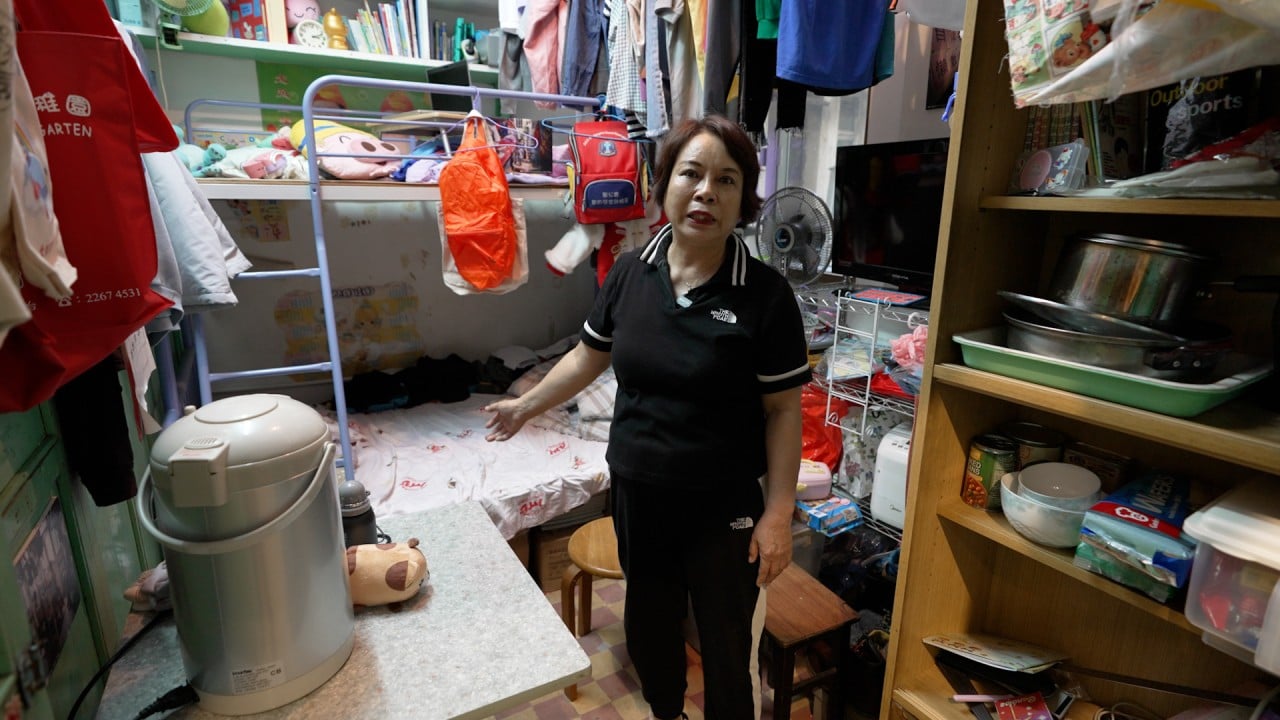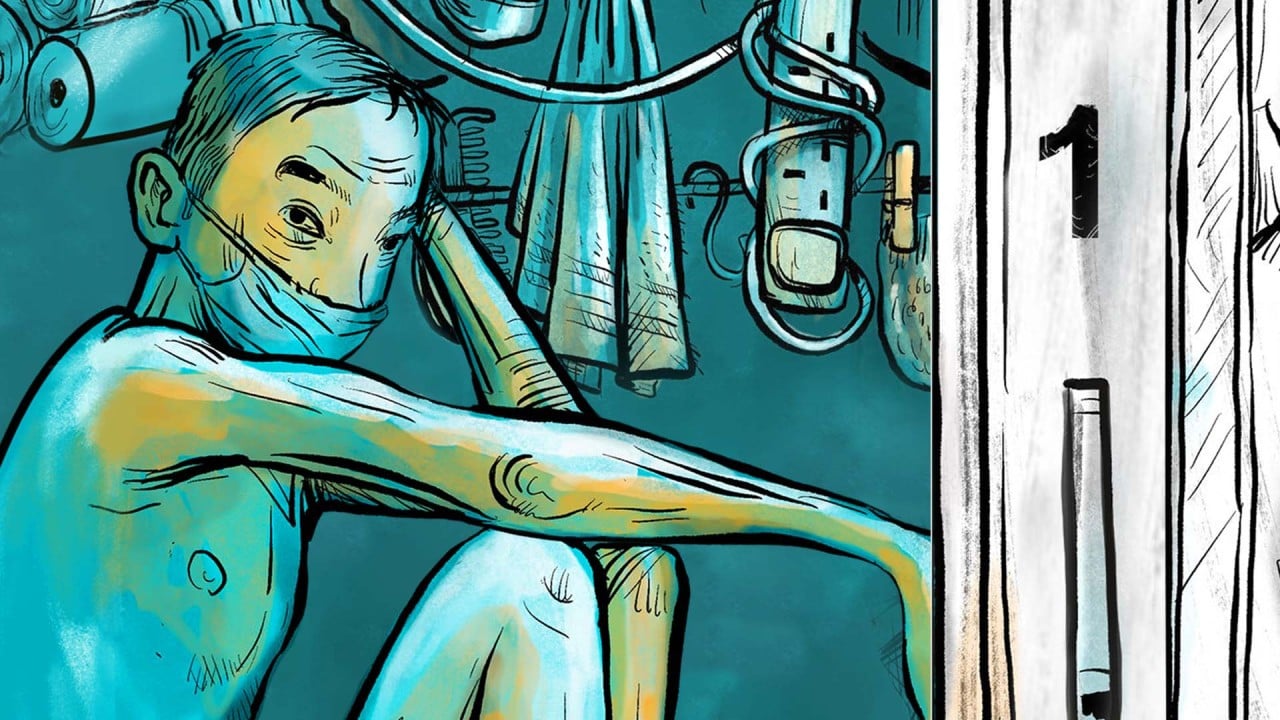Hongkongers in subdivided flats offered health checks, support from social workers under scheme by Jockey Club, local university
[ad_1]
She was helped by a Jockey Club scheme run in partnership with Chinese University.
Ng said the help from the scheme had changed her life, and her health had improved.
“I have to be healthy to take care of my daughter,” she added.
The scheme has provided free two-hour health screenings to about 600 people living in subdivided flats across Hong Kong since April. Those behind the drive hope to reach 6,000 people from the city’s smallest homes next year.
People found to have health problems will get nine months of follow-up action by either a nurse or nutritionist and a social worker. Those who need referrals for further checks will receive subsidies capped at HK$5,000 (US$641).
Hong Kong to set minimum standards for subdivided flats: housing chief
Hong Kong to set minimum standards for subdivided flats: housing chief
The scheme has also trained about 130 people, including medical students, retirees and subdivided flat residents, to be “community care workers” who can carry out simple health checks on participants and keep in touch with those needing follow-ups.
Two community hubs will open soon in Kwun Tong and Tsuen Wan to encourage healthy lifestyles among residents.
Statistics published this year showed that Hong Kong had about 108,200 subdivided flats in 2021, with an average size of 118 sq ft.
Hong Kong to open first ‘community living room’ for subdivided flat residents
Hong Kong to open first ‘community living room’ for subdivided flat residents
The tenants, some of the city’s poorest, paid about HK$5,000 in rent, a third of their monthly income.
Professor Eliza Wong Lai-yi, the associate director of Chinese University’s Jockey Club School of Public Health and Primary Care and the scheme’s principal investigator, said health checks on more than 400 families in subdivided units during 2021 and last year found that half had warning signs for chronic diseases.
About half the participants in the scheme were found to be at risk of diabetes, stroke and heart attack, she added.
“Compared with other Hongkongers, the figure is relatively worrying, especially when they may have financial difficulties and it may be hard for them to organise their time,” Wong said.
“If they do not take precautions and change their behaviour, they may end up suffering from chronic diseases.”
She said the scheme was starting community hubs designed to encourage a healthy lifestyle as many existing community centres did not have such services.
“Community hubs are an extension of the space of those subdivided units,” Wong added.
“Many studies have shown that space plays an important role for families, where they can conduct activities such as having dinner, watching television and celebrating different occasions,” Wong explained. “It is crucial for their physical and mental health development.”
Operators of Hong Kong’s subdivided flats to fulfil new criteria, John Lee says
Operators of Hong Kong’s subdivided flats to fulfil new criteria, John Lee says
Crystal Chan Ying, a research assistant professor at the same school and the scheme’s co-investigator, said the community hubs would be equipped with body fat scales and gym equipment and run regular health checks, as well as having a living room, kitchen and activity space.
“Our goal is to retain these residents through the hubs and help them build healthy lifestyles so that they can still live healthily, even though they are staying at subdivided units and waiting for regular flats to live in,” Chan said.
She added that the deployment of social workers was an important strand of the programme.
“Someone may have diabetes but is unable to improve their condition because they may not have a stable job and may have irregular meals,” Chan said. “Our social worker can help them find the social resources they need.
“Our social workers will solve their most burning issues. They have to be socially stable, then they will be able to take care of their well-being.”
Chan also said that community care workers were a crucial part of the project as they understood the living conditions of participants and could offer practical advice on ways to improve their health.
‘I want to escape’: we have no choice, say Hongkongers in subdivided flats
‘I want to escape’: we have no choice, say Hongkongers in subdivided flats
Victoria Cheung*, 40, also a subdivided flat tenant, became a community care worker in June after she underwent 12 hours of training.
“As someone who also lives in a subdivided unit, I am more familiar with the participants’ situation, which may be the cause of their health problems,” she said.
She underwent a check-up herself and found her body mass index and her blood levels of triglycerides – lipid fat – were above normal.
“Before this scheme, I had never undergone any physical check-ups as they were too expensive,” Cheung said.
*Names changed at interviewees’ request.
[ad_2]
Source link







